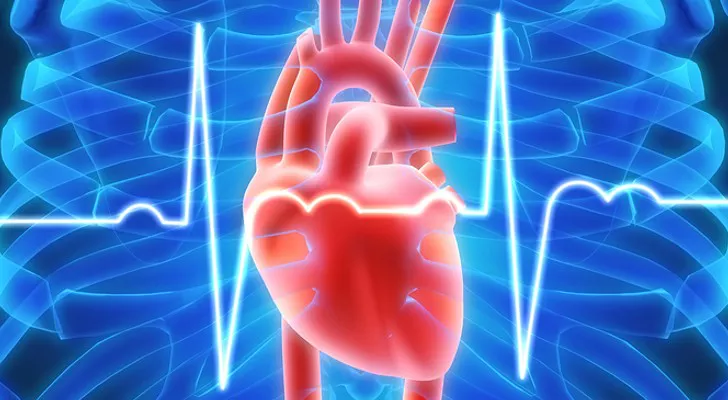Cardiomyopathy refers to a group of diseases that affect the heart muscle, leading to abnormal heart function. This condition can weaken the heart and make it harder for it to pump blood throughout the body. There are three main types of cardiomyopathy: dilated cardiomyopathy (DCM), hypertrophic cardiomyopathy (HCM), and restrictive cardiomyopathy (RCM). Each type has its own characteristics, causes, and treatment approaches. In this article, we will explore these three types of cardiomyopathy in detail.
What Are The 3 Types of Cardiomyopathy
1. Dilated Cardiomyopathy (DCM)
Dilated cardiomyopathy is the most common type of cardiomyopathy. It is characterized by the enlargement of the heart chambers, particularly the left ventricle. This enlargement causes the heart muscle to become thin and stretched, leading to a decrease in its ability to pump blood effectively. As a result, the heart may not be able to meet the body’s needs for oxygen and nutrients.
see also: What Is The Pathophysiology of Left Sided Heart Failure?
Causes:
Genetic factors: DCM can be inherited, with certain genetic mutations increasing the risk of developing the condition.
Viral infections: Some viral infections, such as myocarditis (inflammation of the heart muscle), can damage the heart and lead to DCM.
Alcohol abuse: Excessive alcohol consumption over a long period can weaken the heart muscle and contribute to DCM.
Certain medications: Some medications, including certain chemotherapy drugs and drugs used to treat high blood pressure, can cause DCM as a side effect.
Symptoms:
- Fatigue and weakness
- Shortness of breath, especially during physical activity
- Swelling in the legs, ankles, or abdomen due to fluid retention
- Irregular heartbeats (arrhythmias)
- Dizziness or fainting spells
Treatment:
Medications: Drugs such as beta-blockers, ACE inhibitors, and diuretics may be prescribed to manage symptoms and improve heart function.
Lifestyle changes: Patients are often advised to quit smoking, limit alcohol consumption, and maintain a healthy diet and weight.
Device therapy: In some cases, devices like implantable cardioverter-defibrillators (ICDs) or cardiac resynchronization therapy (CRT) devices may be recommended to help regulate heart rhythm and improve pumping efficiency.
Surgery: In severe cases, heart transplant surgery may be necessary for patients with advanced DCM.
2. Hypertrophic Cardiomyopathy (HCM)
Hypertrophic cardiomyopathy is a condition characterized by abnormal thickening (hypertrophy) of the heart muscle, particularly the left ventricle. This thickening can obstruct the flow of blood out of the heart and cause various symptoms.
Causes:
Genetic mutations: HCM is often inherited, with specific gene mutations leading to abnormal heart muscle growth.
Aging: While HCM can occur at any age, it is more commonly diagnosed in older adults.
High blood pressure: Chronic high blood pressure can contribute to the development of HCM over time.
Symptoms:
- Chest pain or discomfort, especially during physical exertion
- Shortness of breath, particularly during exercise or when lying down flat
- Fatigue and weakness
- Dizziness or lightheadedness
- Fainting spells (syncope)
Treatment:
Medications: Beta-blockers, calcium channel blockers, and anti-arrhythmic drugs may be prescribed to manage symptoms and prevent complications.
Lifestyle modifications: Patients are advised to avoid strenuous exercise and activities that may trigger symptoms. They should also follow a heart-healthy diet and maintain a healthy weight.
Surgical procedures: In some cases, surgical interventions such as septal myectomy (surgical removal of a portion of the thickened heart muscle) or alcohol septal ablation (injection of alcohol into the heart muscle to reduce thickening) may be recommended to relieve obstruction and improve blood flow.
3. Restrictive Cardiomyopathy (RCM)
Restrictive cardiomyopathy is a less common type of cardiomyopathy characterized by stiffening of the heart muscle, which restricts its ability to stretch and fill with blood properly. This stiffness can impair the heart’s ability to pump effectively and lead to symptoms of heart failure.
Causes:
Amyloidosis: This condition involves the buildup of abnormal proteins (amyloids) in various organs, including the heart, leading to RCM.
Sarcoidosis: Inflammatory disease that can affect multiple organs, including the heart.
Hemochromatosis: Iron overload disorder that can cause damage to organs, including the heart muscle.
Radiation therapy: Previous chest radiation therapy for cancer treatment can lead to RCM in some cases.
Symptoms:
- Shortness of breath, especially during physical activity or when lying down
- Fatigue and weakness
- Swelling in the legs, ankles, or abdomen due to fluid retention
- Irregular heartbeats (arrhythmias)
- Chest discomfort or pain
Treatment:
Medications: Diuretics may be prescribed to reduce fluid buildup, and other medications may be used to manage symptoms and underlying causes.
Lifestyle changes: Patients may need to limit salt intake, avoid alcohol, and follow a heart-healthy diet.
Treatment of underlying conditions: Treating underlying conditions such as amyloidosis or sarcoidosis is crucial in managing RCM.
Heart transplant: In severe cases, heart transplant surgery may be considered for patients with advanced RCM and significant heart dysfunction.
Conclution
In conclusion, cardiomyopathy is a complex group of heart diseases that can significantly impact a person’s quality of life.
Understanding the different types of cardiomyopathy, their causes, symptoms, and treatment options is essential for effective management and improved outcomes for patients with these conditions. If you or someone you know is experiencing symptoms of cardiomyopathy, it is important to seek medical attention for proper diagnosis and treatment.

